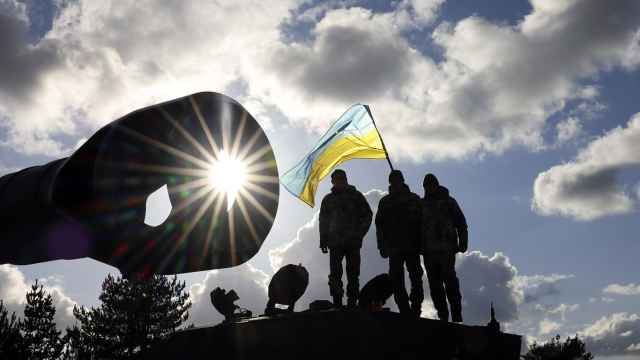 Alexei Bayer
Alexei BayerJust before the start of the 2006 Turin Winter Olympics, I learned by chance that there were still tickets available to see most events. My 11-year-old son was an avid hockey fan. On a lark, we bought a package that included hockey and downhill skiing, along with a compulsory addition of curling, and in mid-February found ourselves on a plane to Italy.
On a website, which helps villagers in the Italian Alps to earn a living, we rented an apartment in a private house. In Turin, mountains rise up just outside the city, and our village was a 20-minute train ride away. Our host was a local butcher who cooked us dinner and kept packing us sausages and meat sandwiches whenever we were off to see a sporting event.
The whole thing was remarkably low-key and informal without visible police or security presence. The streets were teeming with people in a nonstop party. But the best parties were at the Russia House: pretty women, celebrities, vodka and black caviar. Russians were everywhere, easily recognizable by their red and white team suits. It was probably Turin that convinced President Vladimir Putin that Russia should become the host of the Winter Olympics.
Most other fans seemed to be Swedes. They were forever looking to swap hats with fans from other countries. I was particularly popular with them. First of all, I had a Team USA beret, a big rarity. Then, whenever they discovered I was Russian, they wouldn't leave me alone trying to score an invite to the Russia House.
Judging by the reported $51 billion spent on the 2014 Olympics, Sochi is not going to be lighthearted. The security in the aftermath of recent terrorist attacks may make the atmosphere at the Games downright grim. There may also be various protests, for example, against the anti-gay laws passed in Russia last year. To make matters worse, Russians are no longer popular or admired. The U.S. media takes a particularly delight in poking fun at Russia's mishaps as it madly rushes to put the event together. Still, the Games are likely to be as exciting as usual with the world's choice athletes performing their superhuman feats.
Before the Games have started, I want to voice three gripes. In Turin, volunteers of all ages made attending the Games a great experience. They were on every corner, directing fans where they needed to go and answering other questions. Last year, I applied to become a volunteer in Sochi. Although I passed the English test and bilingual interview over Skype with flying colors, I not only didn't get the job but was not even informed that I was no longer being considered. That wasn't nice and doesn't bode well for how the Games will be organized.
Meanwhile, I got plenty of e-mails inviting me to purchase Olympic merchandise on the Sochi website, which brings up my second gripe: Most of the Sochi stuff is plain ugly.
Finally, the Sochi Olympics offered a perfect opportunity to showcase bandy, also known as Russian hockey. It is essentially field hockey on skates a fast-pace, nonchecking, high-scoring sport played in Scandinavian countries, Russia and some former Soviet republics. The U.S. and Canada have national bandy teams, and there is women's bandy as well. It was a demonstration sport in 1952 at the Oslo Olympics. But this year, an excellent opportunity to gain new fans for this beautiful game was wasted.
Alexei Bayer, a native Muscovite, lives in New York. His detective novel "Murder at the Dacha" was published by Russian Life Books in 2013.
A Message from The Moscow Times:
Dear readers,
We are facing unprecedented challenges. Russia's Prosecutor General's Office has designated The Moscow Times as an "undesirable" organization, criminalizing our work and putting our staff at risk of prosecution. This follows our earlier unjust labeling as a "foreign agent."
These actions are direct attempts to silence independent journalism in Russia. The authorities claim our work "discredits the decisions of the Russian leadership." We see things differently: we strive to provide accurate, unbiased reporting on Russia.
We, the journalists of The Moscow Times, refuse to be silenced. But to continue our work, we need your help.
Your support, no matter how small, makes a world of difference. If you can, please support us monthly starting from just $2. It's quick to set up, and every contribution makes a significant impact.
By supporting The Moscow Times, you're defending open, independent journalism in the face of repression. Thank you for standing with us.
Remind me later.





